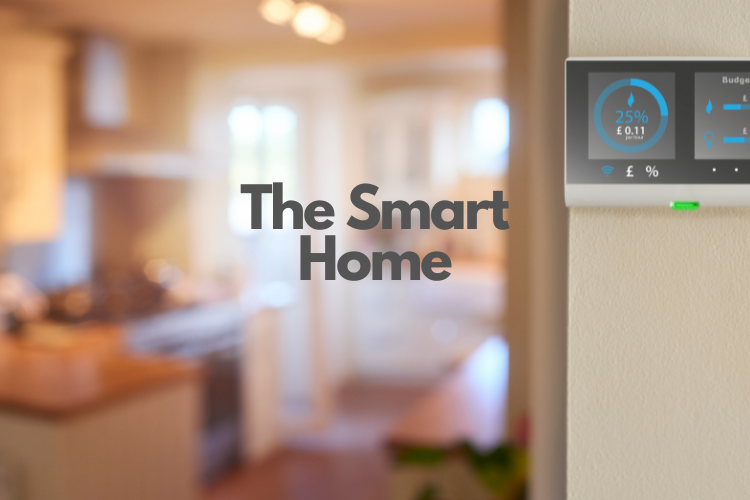Smart home technology is rapidly evolving, and the latest advancements are making it easier than ever to automate your home and improve your quality of life. Smart Homes That Save You Time, Money & Energy. From voice-activated assistants to smart locks to security cameras, there are a wide variety of devices and systems available that can help you save time, money, and energy.
In this blog post, we will take a look at some of the latest advancements in smart home technology and how they can benefit you. We will also discuss some of the challenges that still need to be addressed before smart homes become truly mainstream.
What is smart home technology?
Smart home technology is a broad term that encompasses any device or system that can be used to automate your home. This can include things like smart thermostats, smart lights, smart locks, security cameras, and voice-activated assistants.
The goal of smart home technology is to make your home more comfortable, convenient, and secure. By automating your home, you can control your devices and appliances remotely, receive alerts when something is wrong, and create custom scenes that make your life easier.
What are the latest advancements in smart home technology?
There are a number of exciting advancements in smart home technology that are currently in development or have recently been released. Some of the most notable advancements include:
Voice-activated assistants: Voice-activated assistants like Amazon Alexa, Google Home, and Apple HomePod are becoming increasingly popular. These devices allow you to control your smart home devices with your voice, which can be very convenient. For example, you can ask Alexa to turn on the lights, lock the doors, or play your favourite music.
Security cameras: Security cameras can help you keep an eye on your home when you are not there. Many security cameras now offer features like motion detection, night vision, and two-way audio.
IoT devices: The Internet of Things (IoT) is a rapidly growing trend that is having a major impact on the smart home market. IoT devices are everyday objects that have been connected to the internet, and they can be used to automate your home in a variety of ways. For example, you can use IoT devices to control your thermostat, lights, and appliances.
Smart home technology can make your life easier and more efficient in a number of ways. Here are a few examples:
Save time: Smart home technology can help you save time by automating tasks that you would normally have to do manually. For example, you can set your thermostat to turn down at night or have your lights turn on automatically when you come home.
Save money: Smart home technology can help you save money by automating your energy usage. For example, you can set your thermostat to turn down when you are away from home or have your lights turn off when you leave a room.
Increase security: Smart home technology can help you increase security by making it easier to monitor your home and keep an eye on who is coming and going. For example, you can use security cameras to keep an eye on your home when you are not there or have your smart locks automatically lock when you leave the house.
Improve comfort: Smart home technology can help you improve comfort by making it easier to control your home’s temperature, lighting, and other features. For example, you can set your thermostat to a comfortable temperature before you get home from work or have your lights turn on gradually in the morning to wake you up gently.
Challenges facing smart home technology
While smart home technology has a lot of potential to make our lives easier and more efficient, there are still a number of challenges that need to be addressed before it becomes truly mainstream. Some of the biggest challenges facing smart home technology include:
Security: One of the biggest concerns with smart home technology is security. If your smart home devices are not properly secured, they could be hacked and used to access your personal information or even control your home’s systems.
Interoperability: Another challenge facing smart home technology is interoperability. Currently, there are a number of different smart home platforms and devices, and they do not always work together seamlessly. This can make it difficult to create a truly integrated smart home system.
Cost: Smart home technology can be expensive
Summary
Smart home technology is rapidly evolving, and the latest advancements are making it easier than ever to automate your home and improve your quality of life. There are a wide variety of devices and systems available that can help you save time, money, and energy.
Some of the latest advancements in smart home technology include voice-activated assistants, smart locks, security cameras, and IoT devices. These devices can be used to control your home’s temperature, lighting, and appliances, as well as keep an eye on your home when you are not there.
Smart home technology has the potential to make our lives easier and more efficient, but there are still some challenges that need to be addressed before it becomes truly mainstream. These challenges include security, interoperability, and cost.
Despite these challenges, smart home technology is a rapidly growing market, and it is likely that we will see even more advancements in the years to come. As these technologies continue to develop, we can expect to see even more ways to make our homes more comfortable, convenient, and secure.

